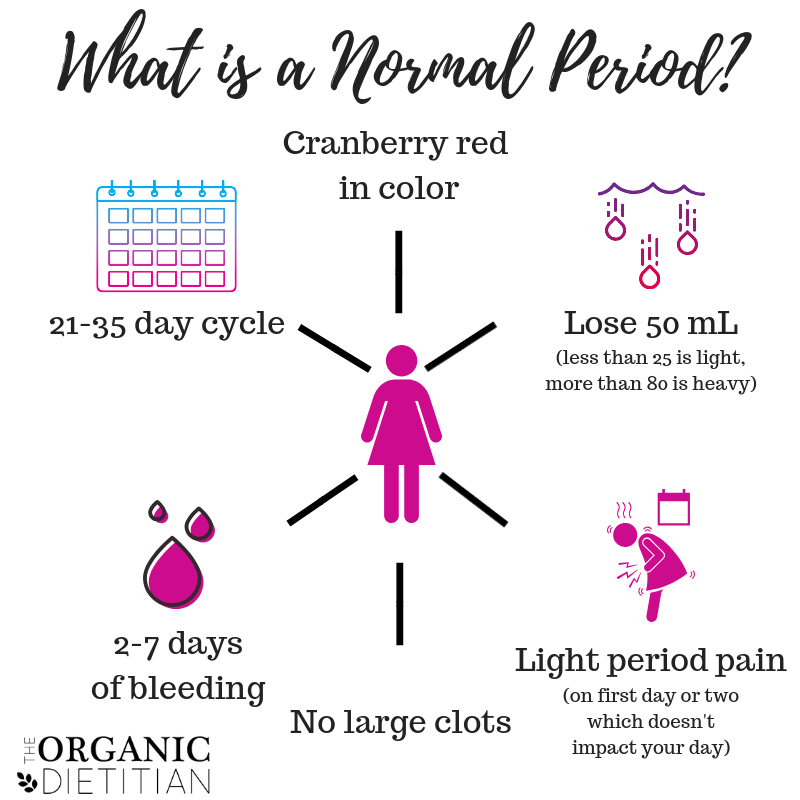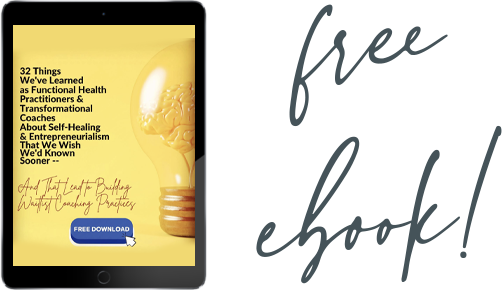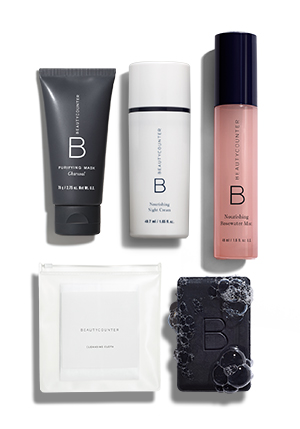21 January, 2019
What is a Normal Period? Better Understanding Your Cycle

Our periods can tell us a lot about our health, so as women, it is important to know what a normal period is like. In fact some people consider them a vital sign and I completely agree with that idea. If your cycles are abnormal, then you could be experiencing symptoms that indicate imbalanced hormones, or something else going on in your body. I find that lots of women don’t know what their periods should be like. We tend to accept intense period cramps and moodiness as”normal.” But that couldn’t be further from the truth. It isn’t our fault that we don’t know what to expect from our periods; this is often not something that we are taught. Today I am going to teach you this important lesson and answer the question: what is a normal period?
Length of Your Cycle
Day 1 of your cycle is the first day that you see blood, and the last day of your cycle is the day before your next period starts. This count equals the length of your cycle. A normal cycle should last between 21-35 days (28 days being average). Ideally your cycle length would be fairly consistent (within a few days) versus skipping around a lot cycle to cycle. If one month your cycle is 21 days and the next month it is 35 days, then it might be worth doing some investigating to find out why the large variation (especially if it stays consistently irregular).
If your cycle is longer than 35 days it may be due to stress, illness, polycystic ovarian syndrome (PCOS), undereating, thyroid issues, or moving into menopause.
I do want to note that a teenager that just started her period may have a longer cycle in the beginning lasting up to 45 days but this should improve with time. If it doesn’t then it could be a symptom.
How Long Should it Last
Your period bleeding should last 2-7 days. The flow is often its strongest for 3-5 days and you may experience a couple of light days as your period finishes up. If you see brown (almost dried up looking) blood initially this is often blood that was “leftover” from your previous cycle and could indicate low progesterone. The first day that you see fresh blood is day 1 of your cycle. Any spotting that happens before or after your cycle usually still counts as bleeding days.
Periods lasting longer than 7 days could be a sign of PCOS or be due to perimenopause. Spotting in between cycles is often a sign of low progesterone.
Blood Clots
If your periods are heavy, then your anticoagulants may not have enough time to keep up with your blood flow, which can cause large blood clots. The most problematic clots are ones that are larger than a dime and happen frequently. If you have the occasional small clot it may be normal.
Period Pain
Pain and cramping are symptoms that are by far accepted as being “normal”, but that isn’t necessarily the case. A little cramping can be normal. Light cramps or pain that last 1-2 days, but don’t knock you out for the day is ok. It is the super painful cramps that are throbbing and last for days that can be a symptom of something out of whack. It might be so bad that you are doubled over in pain or need to take the day off work to stay in bed.
This type of pain can be caused by imbalanced hormones or, in worse cases, things like endometriosis.
Heavy Periods
From a medical perspective, you normally want to lose about 50 mL of fluid during your period. That usually equals about three tablespoons of fluid over the length of your period. One regular pad or tampon holds about one teaspoon of fluid and you shouldn’t need to change that pad or tampon more than once every two hours.
If your period is super light, then it could be a sign that you didn’t ovulate. A heavy period can be caused by many different things like copper IUD, no ovulation, endometriosis, perimenopause, thyroid issues, or estrogen dominance.
Color
When your period starts, it should be a nice bright red color, similar to cranberry juice. If it gets dark and almost purple in color then it could be a sign of estrogen dominance. If it gets light pink then it could be a sign of low estrogen. If your blood is brown, that is old blood that has been oxidized and it didn’t make it out of your uterus during the last cycle, which can be a sign of low progesterone.
Your period is something that should be paid attention to every month because it can tell you a lot and give you clues about your health. Don’t feel bad if you have abnormal periods because this is something that most doctors don’t even know and this topic isn’t talked about with enough. Use the clues your body is giving you as helpful hints to investigate and dig deeper to find the root cause and get things back on track. One thing I don’t recommend to “fix” an irregular period is birth control.
Hormones are a complicated system with many moving parts so one of the best things you can do is to work closely with a practitioner that will do proper functional testing like DUTCH from Precision Analytical and help you get to the root cause.
ARE YOU READY TO GET TESTED AND TURN YOUR HEALTH AROUND? CLICK THE BUTTON BELOW TO REQUEST A FREE 30 MINUTE DISCOVERY CALL…
As a Holistic Dietitian and Functional Diagnostic Nutrition Practitioner, I help clients get proper testing, assist in the process of reading those results using clinical correlation (treating the patient and not just the test results), and give them the proper tools (diet, supplements, and lifestyle) to start the healing process.















 80% of chronic dis-ease is rooted in stre
80% of chronic dis-ease is rooted in stre
 As
As 
